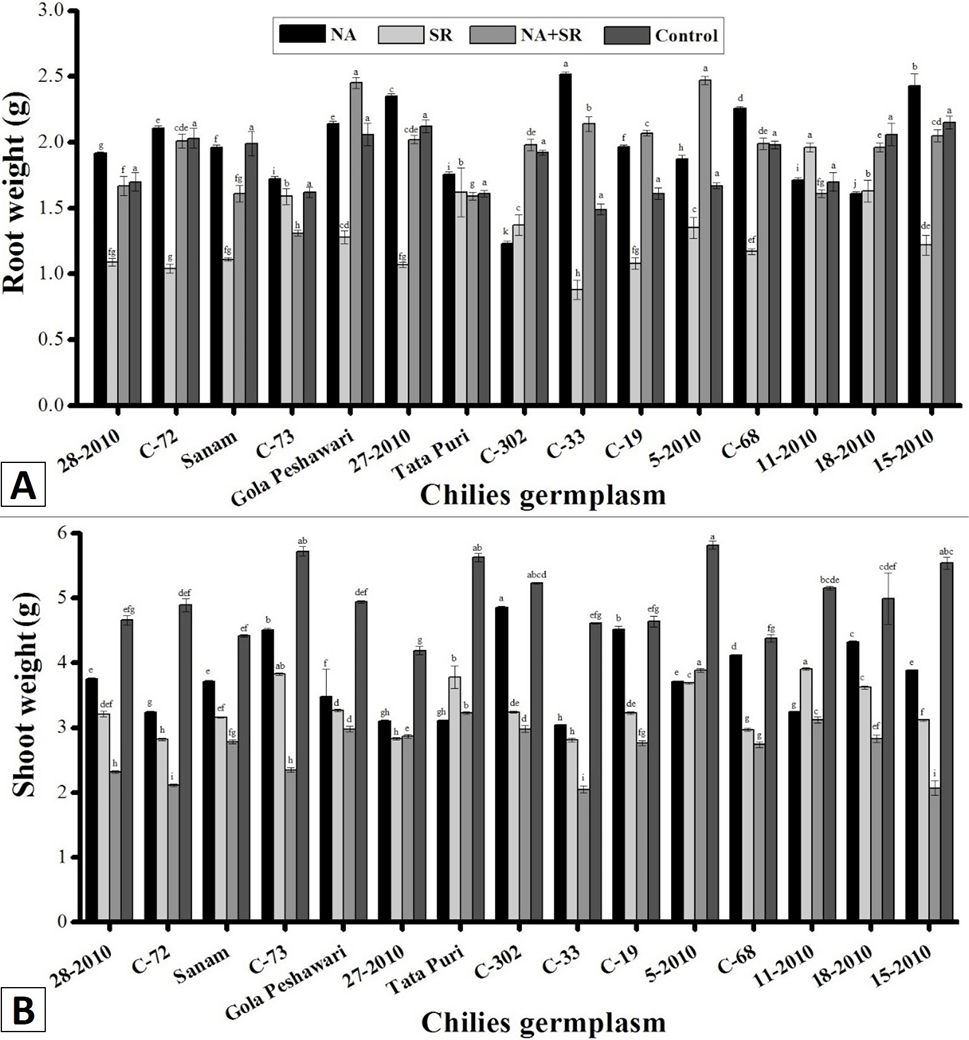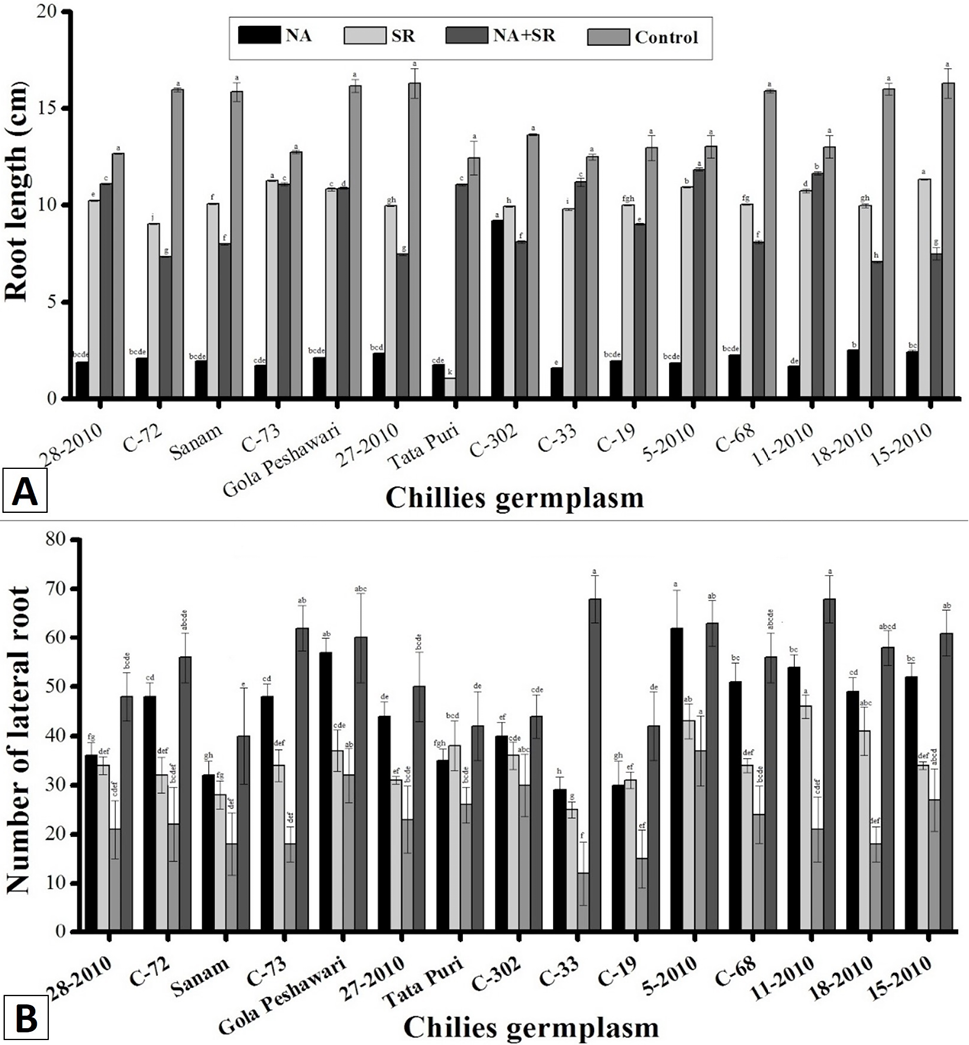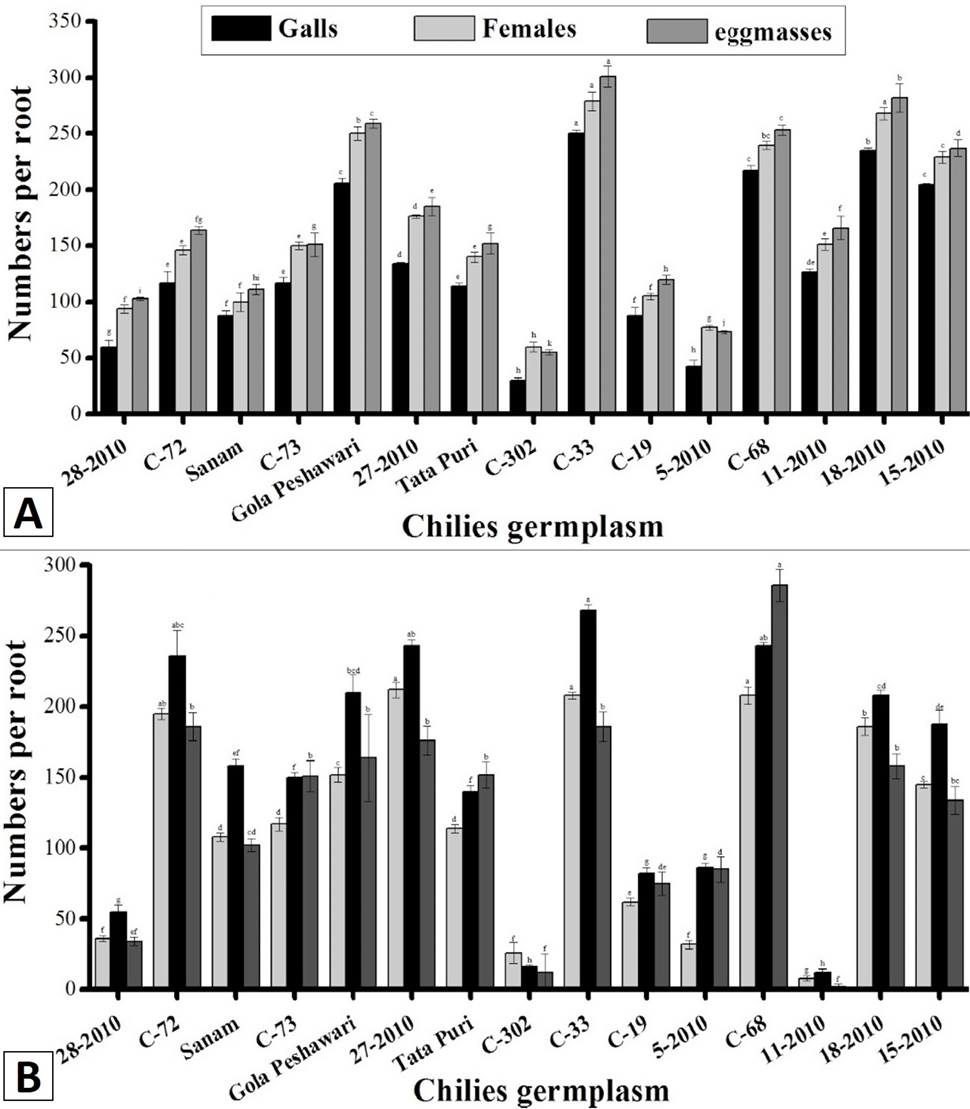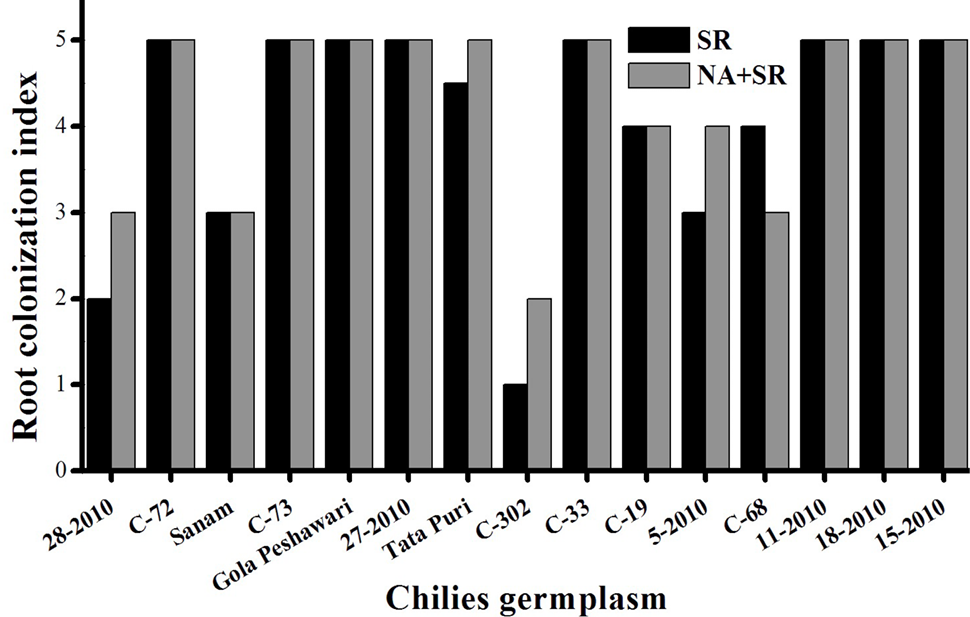Evaluation of Resistance of Capsicum annum against Meloidogyne incognita and Sclerotium rolfsii and their Integrated Management
Evaluation of Resistance of Capsicum annum against Meloidogyne incognita and Sclerotium rolfsii and their Integrated Management
Adnan Yousaf1,Jia Wu1, Qaiser Shakeel2, Yasir Iftikhar3, Muhammad Irfan Ullah4, Uzma Tahira5,Mustansar Mubeen1 and Wubei Dong1,*
Screening of 15 chilies cultivars on the basis of root (A) and shoot (B) weight against Meloidogyna incognita and Sclerotium rolfsii. Bars within each treatment followed by the same letters do not significantly different (P= 0.05) according to Duncan multiple range test. NA, M. incognita alone; SR, S. rolfsii alone; NA + SR, M. incognita and S. rolfsii in combination.
Screening of 15 chilies cultivars on the basis of root length (A) and development of lateral roots (B) against Meloidogyna incognita and Sclerotium rolfsii. Bars within each treatment followed by the same letters do not significantly different (P= 0.05) according to Duncan multiple range test. NA, M. incognita alone; SR, S. rolfsii alone; NA + SR, M. incognita and S. rolfsii in combination.
Screening of 15 chilies cultivars on the basis of nematode development patameters against Meloidogyna incognita and Sclerotium rolfsii. Bars within each treatment followed by the same letters do not significantly different (P= 0.05) according to Duncan multiple range test. M. incognita applied alone in A and M. incognita and S. rolfsii applied in combination in B.
Root colonization by Sclerotium rolfsii on 15 tested germplasm of chilies in artificially infested soil with S. rolfsii @ 1 sclerotia per gram of soil.

















